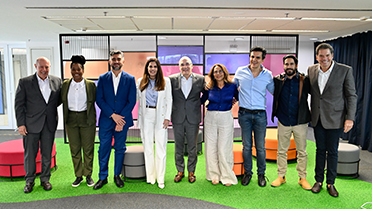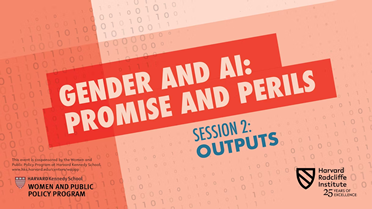bio
I am a Full Professor at the Department of Applied Informatics, UNIRIO, a Research Affiliate at MIT Sloan, a CNPq researcher and member of the Education Board of SENAC. I hold a Ph.D. from Stanford University (1992), and a pos-doc at MIT (2013 and 2022). My work focuses on Artificial Intelligence (AI), Collective Intelligence (CI), and AI Ethics, particularly in augmenting human decision-making and addressing algorithmic bias.
I have authored over 250 publications in high-impact journals and leading conference proceedings, with a Google Scholar h-index of 28 (as of May 2025). Throughout my academic career, I have advised 38 master's and 15 doctoral students. I am a Senior Member of the IEEE, serve on editorial boards of prominent AI journals, and actively participate in program committees. I have delivered keynotes, tutorials, a TEDx talk, and, more recently, presented at the Harvard Radcliffe Institute.
I also have extensive experience in innovation. From 1996 to 2017, I directed ADDLabs, an AI research laboratory focused on developing advanced solutions for the petroleum industry. During this period, the lab successfully created over 20 AI-based systems, securing more than $5 million in research and development funding.
I have held leadership roles as Chair of the Informatics Graduate Program and Strategic Committee Member, and I actively contribute to national education policy as a member of SENAC’s Advisory Committee (2025-2027). I am passionate about international research collaboration, having coordinated funded projects and conducted extended research visits at Stanford, MIT, and Universidad Carlos III de Madrid.
Lattes: http://lattes.cnpq.br/4879977915136752
h-index (Google Scholar) = 28
https://scholar.google.com/citations?user=qN-wg74AAAAJ&hl=en
research
AI for Social Good: Health and Education
This research line focuses on the development and application of artificial intelligence solutions aimed at social good, with an emphasis on the fields of health and education. We investigate how AI can support the diagnosis and monitoring of conditions such as depression, promoting explainability and trust in the systems. In education, we explore the use of AI techniques for personalizing learning, identifying dropout risks and supporting decision-making by managers and teachers. The goal is to generate a positive impact with ethical, accessible, and people-centered solutions.
Algorithmic Transparency and Explainability in Sensitive Systems
This research line investigates how to promote transparency and fairness in automated decision-making systems applied to sensitive contexts, such as finance and mental health. In the financial sector, we analyze biases in credit decisions related to gender, education, and socioeconomic status, using fairness metrics and explainability techniques to make models more auditable and ethical. In parallel, we study the role of explanations in depression diagnosis support systems, aiming to understand how to make the model’s decisions more understandable and trustworthy for both experts and patients. The overall goal is to contribute to the development of fairer, more transparent, and human-centered AI systems.
AI for Dialogue and Mutual Understanding in Polarized Societies
This research line investigates how artificial intelligence can help identify convergences between proposals from groups with different beliefs and demographic profiles, based on issues of collective interest. We initially use AI to detect similarities in intent and later to rewrite ideas in a neutral way and assess their acceptance among opposing groups. Experiments inspired by The Moral Machine measure the degree of polarization and test strategies to mitigate it. A subproject analyzes the relationship between monetization and aggressive comments on YouTube videos. The central focus is to promote dialogue and mutual understanding through algorithmic solutions.
news
-

First meeting of the SENAC Education Council. The members of the Board are: Gabriel Chalita, Alexandre Accioli, Anderson Pedroso, Claudia Romano, Ronaldo Lemos, Sinara Rúbia and Cristina Garcia.https://www.rj.senac.br/
-

Gender and AI: Promise and Perils | Session2: Outputs
Guest speaker at Harvard.https://www.youtube.com/watch?v=G3l45KKgBlA&t=1608s -

Collective Intelligence
https://www.youtube.com/watch?v=KJojlfjtz2s -

Artificial Intelligence and Its Destiny
https://www.youtube.com/watch?v=BRDfuJJ8jjI -

Virtual Reality
https://www.youtube.com/watch?v=0KgEZpgJF5Q -

-

Click for Computing
https://www.youtube.com/watch?v=BfPQtOQSDlc -

Ambient Intelligence
https://www.youtube.com/watch?v=znsYq5xO8pw
teaching
2025.1
- Scientific Research Methodology
- Human-Computer Interaction
2025.2
- Artificial Intelligence
- Collaborative Systems
papers
- Garcia, A. C. B.; Vivacqua, A. S. (2024). Navigating virtual spaces: Understanding user adaptation in online meetings during the pandemic. International Journal of Human-Computer Studies, 188, 103274.
- Garcia, A. C. B.; Garcia, M. G. P.; Rigobon, R. (2023). Algorithmic discrimination in the credit domain: What do we know about it? AI & Society, 1-40.
- Cardoso Durier da Silva, F.; Bicharra Garcia, A. C.; Wolfgang Matsui Siqueira, S. (2023). Sentiment Gradient - Improving Sentiment Analysis with Entropy Increase. Inteligencia Artificial, 26, 114-130.
- Ribeiro, L. A. P. A.; Garcia, A. C. B.; dos Santos, P. S. M. (2022). Dependency Factors in Evidence Theory: An Analysis in an Information Fusion Scenario Applied in Adverse Drug Reactions. Sensors, 22, 2310.
- Oliveira, C.; Garcia, A. C. B.; Diirr, B. (2022). Why shop on social media? A systematic review. International Journal of Internet Marketing and Advertising, 16, 344-368.
- Garcia, A. C. B.; Vivacqua, A. (2021). Should I stay or should I go? Managing Brazilian WhatsApp groups. First Monday, 1-7.
- Oliveira, C. R.; Garcia, A. C. B.; Vivacqua, A. (2021). The cost structure of influencers’posts: The risk of losing followers. Personal and Ubiquitous Computing, 1, 1-22.
- Galvão, V. F.; Maciel, C.; Pereira, R.; Gasparini, I.; Viterbo, J.; Garcia, A. C. B. (2021). Discussing human values in digital immortality: Towards a value-oriented perspective. Journal of the Brazilian Computer Society, 27, 1-26.
- Pintas, J. T.; Fernandes, L. A. F.; Garcia, A. C. B. (2021). Feature selection methods for text classification: A systematic literature review. Artificial Intelligence Review, 54, 6149-6200.
- Cinalli, D.; Martí, L.; Sanchez-Pi, N.; Garcia, A. C. B. (2020). Collective intelligence approaches in interactive evolutionary multi-objective optimization. Logic Journal of the IGPL, 28, 95-108.
- Sacramento, C.; Ferreira, S. B. L.; Capra, E. P.; Garcia, A. C. B. (2019). Accessibility and communicability on Facebook: A case study with Brazilian elderly. First Monday, 24, 1-7.
- Garcia, A. C. B.; Vivacqua, A. (2019). Grounding knowledge acquisition with ontology explanation: A Case Study. Journal of Web Semantics, 57, 1-16.
- Oliveira, C.; Garcia, A. C. B. (2019). Citizens’electronic participation: A systematic review of their challenges and how to overcome them. International Journal of Web Based Communities, 15, 123-150.
- Natal, I. P.; Correia, L.; Garcia, A. C. B.; Fernandes, L. A. F. (2019). Efficient out-of-home activity recognition by complementing GPS data with semantic information. First Monday, 24, 2.
- Vivacqua, A.; Garcia, A. C. B. (2018). ACoPla: A multi-agent simulator to study individual strategies in dynamic situations. Advances in Distributed Computing and Artificial Intelligence Journal, 7, 81-91.
- Maciel, C.; Roque, L.; Garcia, A. C. B. (2018). Maturity in decision-making: A method to measure e-participation systems in virtual communities. International Journal of Web Based Communities, 14, 395-416.
- Nascimento, F. R. A.; Cesar da Rocha, J.; Garcia, A. C. B. (2018). Automated Evaluation of Open Government Data Portals. International Journal of Electronic Government Research, 14, 57-72.
- Garcia, A. C. B.; Vivacqua, A.; Sanchez-Pi, N.; Martí, L.; Molina, J. M. (2017). Crowd-Based Ambient Assisted Living to Monitor the Elderly’s Health Outdoors. IEEE Software, 34, 53-57.
Recent Selected Peer-reviewed Conference Papers
- Nascimento, R.; Serra, C.; Nobre de Mello, A. C.; Garcia, A. C. B. (2025). Predicting Oncology Readmissions: A Machine Learning Approach Using the MIMIC-IV-ED Database. In Hawaii International Conference on System Sciences, Big Island, Hawaii. Manoa: ScholarSpace. BEST PAPER AWARD
- Paiva, R.; Cataldo, W.; Garcia, A.; De Mello, C. R. (2024). Digital Discrimination Detection in Ridesharing Services in Rio de Janeiro City. In 16th International Conference on Agents and Artificial Intelligence, Rome, pp. 1205-1212.
- Mattos, M.; Siqueira, S.; Garcia, A. (2024). Fair and Equitable Machine Learning Algorithms in Healthcare: A Systematic Mapping. In 16th International Conference on Agents and Artificial Intelligence, Rome, pp. 815-822.
- Rodrigues, H. S.; Moraes, L. O.; Santiago, E. S.; Campos, J. P. P.; Guimarães Júnior, E. S.; Wanderley, G. M. C. X.; Garcia, A. C. B.; De Mello, C. E. R.; Alvares, R. V.; Santos, R. P. (2024). Predicting Student Dropout in the Information Systems Undergraduate Program at UNIRIO Using Decision Trees. In XXXII Workshop sobre Educação em Computação (WEI 2024), p. 588.
- Pereira, M. B.; Lancelotte, F. S.; De Classe, T. M.; Garcia, A. C. B. (2024). Simulation Sickness in Virtual Reality Games: How to Relieve It - A Systematic Literature Study. In SVR 2024: Symposium on Virtual and Augmented Reality, Manaus, pp. 168-176.
- Nguema Ngomo, J. G.; Torres de Paiva, R.; Garcia, A. C. (2024). Fake News Detection by Machine Learning in Latin America: A Systematic Review. In Hawaii International Conference on System Sciences, Hawaii.
- Xavier, C.; Cataldo, W.; Siqueira, S. W. M.; Garcia, A. C.; Mello, C. (2024). Understanding the Negative Effects of Social Networking Mobile App Notifications on the Attention of Young People and Adults: A Systematic Literature Mapping. In Hawaii International Conference on System Sciences, Hawaii.
- Pinto, F.; Garcia, A. C. (2024). Facing Constitutive and Normative Aspects of Different Philosophical Currents When Approaching AI Ethics. In I Conferência Latino-Americana de Ética em Inteligência Artificial (LAAI-Ethics 2024), Porto Alegre, SBC, pp. 133-136.
- Do Nascimento, J. O.; Garcia, A. C. B.; Siqueira, S. W. (2023). Collaborative Elaboration of Design Fiction Narratives with Participatory Design Fiction Extend. In 26th International Conference on Computer Supported Cooperative Work in Design (CSCWD 2023), Rio de Janeiro, pp. 1330-1335. FINALIST IN THE BEST PAPER AWARD
- Nascimento, L. de F.; Souza, G. dos S.; Garcia, A. C. B. (2023). Machine-Based Stereotypes: How Machine Learning Algorithms Evaluate Ethnicity from Face Data. In XIX Brazilian Symposium on Information Systems (SBSI 2023), Maceió, pp. 159-166.
- Galvão, V. F.; Maciel, C.; Pereira, V. C.; Garcia, A. C. B. (2023). Acceptability and Renown of Digital Immortality Through the Lens of the User. In 2023 IEEE International Conference on Systems, Man, and Cybernetics (SMC), Honolulu, pp. 4464-4469.
- Morais, F. L. D.; Garcia, A. C. B.; Dos Santos, P. S. M.; Ribeiro, L. A. P. A. (2023). Do Explainable AI Techniques Effectively Explain Their Rationale? A Case Study from the Domain Expert’s Perspective. In 26th International Conference on Computer Supported Cooperative Work in Design (CSCWD 2023), Rio de Janeiro, pp. 1569-1574.
- Nascimento, L. de F.; Garcia, A. C. B. (2022). What's Behind a First Impression? Implications for Portrait Selection on Gig Work Platforms. In XVII Simpósio Brasileiro de Sistemas Colaborativos (SBSC Estendido 2022), pp. 39-43.
- Garcia, A. C.; Barros, M. O. (2021). Minimizing the Usage of SARS-CoV-2 Lab Test Resources Through Test Pooling Enhanced by Classification Techniques. In 54th Hawaii International Conference on System Sciences, Waikiki, pp. 3733-3742.
- Da Paixão Pinto, N.; Dos Santos França, J. B.; De Sá Sousa, H. P.; Vivacqua, A. S.; Garcia, A. C. B. (2021). Conversational Agents for Elderly Interaction. In 24th IEEE International Conference on Computer Supported Cooperative Work in Design (CSCWD 2021), Dalian, pp. 1-6.
- Daudt, F.; Cinalli, D.; Garcia, A. C. B. (2021). Research on Explainable Artificial Intelligence Techniques: A User Perspective. In 24th IEEE International Conference on Computer Supported Cooperative Work in Design (CSCWD 2021), Dalian, pp. 144-149.
